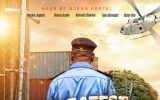Nigerian-British historian David Olusoga, 47 has been speaking about the lack of women and non-white historians at this year’s Chalke Valley festival which he believes sends out a worrying message to Britain’s young.
The Chalke Valley is to historians what Glastonbury is to pop culture; but in this year’s festival programme, out of the 148 speakers there are only 32 women, and only one non-white historian. “When your festival lineup includes three times more veterans of Hitler’s Wehrmacht than non-white historians, you’d have to at least wonder if your diversity and inclusion strategies are state of the art,” Olusoga said.
David Olusoga who The Guardian says “has an easy eloquence that is made for TV, speaking in perfectly formed, modulated sentences” has presented a number of historical documentaries on the BBC. He joined the BBC in 1998 as a researcher on Radio 4 and has contributed to The One Show and The Guardian. He is the author of Black and British: A Forgotten History (2016), The World’s War (2015); and The Kaiser’s Holocaust: Germany’s Forgotten Genocide and the Colonial Roots of Nazism (2011).
He has been broadcasting on black British history for almost two decades amidst backlash from people who are not fans of his work. “The number of people who say, ‘I’m sick of hearing about slavery’, or ‘black people are always talking about slavery’. My response to them is ‘Name a British plantation. Name a slave trader. Name a British slave ship.’ Normally they can’t, because we don’t know that much about slavery. It’s not a central part of our national story,” he once pointed out.
Olusoga was born in Lagos to a British mother and a Nigerian father who met in Newcastle when they were students. Living in the United Kingdom, he was a victim of harsh racism. “People used to shout ‘National Front’ at us. And ‘wogs out’. It was routine, ubiquitous. There were men who would spit and shout. When we came out of school, we’d go to the bus stop and if there wasn’t a white person waiting, we’d walk to the next one because we knew the buses wouldn’t stop for black people. Sometimes we’d end up walking all the way home.” Later he would figure out how the study of world history could help him make sense of that personal experience.













